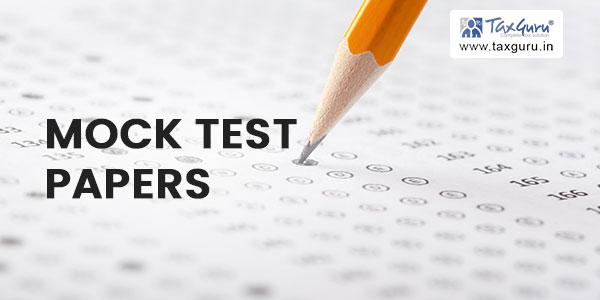In the case of BUILT OPERATE and TRANFER PROJECTS (‘BOT’), Under the concessionaire agreement between the Government and the developer, the developer is required to construct, develop and maintain the infrastructural facility of roads, highways etc. at its own cost and its utilization for a specified period. The developer collects toll from the user of such facility as consideration.
In such BOT arrangements, as a matter of general practice, possession of land is handed over to the developer by the Government/notified authority for project without any actual transfer of ownership and such taxpayer has only a right to develop and maintain such asset. At the end of the specified period, the developer may generally be required to hand over the infrastructure facility to the government at free of cost.
It is a matter of debate before courts/tribunals about the eligibility of depreciation on toll road. This issue has been dealt in number of Tribunal and courts. The CBDT vide its circular No. 9 Dated 23rd April, 2014 has clarified that the cost of construction on development of infrastructure facility of roads/highways under BOT basis may be amortized evenly over the period of the concessionaire agreement after excluding the time taken for creation of such facility. However, different decision has been taken in courts/Tribunal which can be elaborated as further:
- The entire cost of construction and development of the infrastructure facility had to be amortized evenly over the period of the concessionaire agreement and allowed as business expenditure under section 37(1) of the Act.
- The cost incurred for the development and construction of the infrastructure facility on BOT basis was treated as ‘License/right to collect toll’ and hence the same was intangible asset entitled for depreciation. (ACIT v. Ashoka Buildcon Ltd. (ITA No. 2317/PN/2012). Ashoka Info (P.) Ltd v. ACIT [2010] 35 SOT 50 (Pune).
- The toll road is eligible for depreciation even through the taxpayer is not the legal owner of the road. In some of the cases, it has been held that told road would fall under the head of ‘building and is eligible for depreciation at 10%. CIT v. Noida Toll Bridge Co. Ltd. ITA No. 2 of 2012, November 8, 2012
- The Supreme Court in the case of Mysore Minerals Ltd. v. CIT [1999] 239ITR775 (SC) has held that the term ‘owned’ as occurring in Section 32(1) of the Act must be assigned a wider meaning. The tax benefit on account of depreciation legitimately belongs to one who has invested in the Capital asset and there cannot be two owners of the property simultaneously. The depreciation is allowable to the person in whom for the time-being vests and who has the dominion over the building and who is entitled to use it in his own right.
Recently, in the case of North Karnataka Expressway Ltd. v. CIT (ITA No. 499 of 2012), the Bombay High Court has held that depreciation is not allowable on toll road constructed under the BOT basis since the toll road belongs to the Government and the assessee want not the owner of the said road. The ownership of the National Highway, being that of the Government, it can never be said to be divested of that absolute right by engagement of any person or by entrusting any of the functions of the authority to him.
However, the Bombay High Court in this case has not considered the ownership criteria on the basis of Income Tax Act, 1961 but on the basis of National Highways Act, 1956 or the National Highways Authority of India Act, 1988. The High Court has held that as per these Acts the assessee is not the owner of toll road which was constructed and maintained by it and therefore, depreciation cannot be allowed on the same. Further, it is to be mentioned that the CBDT circular as mentioned above has not been considered in this decision.
After going through the above decision, it can be opined that even Bombay High Court has held that depreciation is not allowable on toll road constructed under the BOT basis though after the clarification by the CBDT and the decision of other Courts and Tribunal the cost of construction on development should be amortized evenly over the period of the concessionaire agreement after excluding the time taken for creation of such facility.
(Author may be contacted at navneet.singal@gmail.com )





















The Bombay High Court has decided the issue of whether depreciation on road is allowable under the classification of ‘building. It does not decide on depreciation as an intangible asset on ‘right to collect toll’, since it was not an issue before the Court. In any case it appears that in the decision, the provisions of Explanation 1 to sec. 32 also does not appear to have been considered.